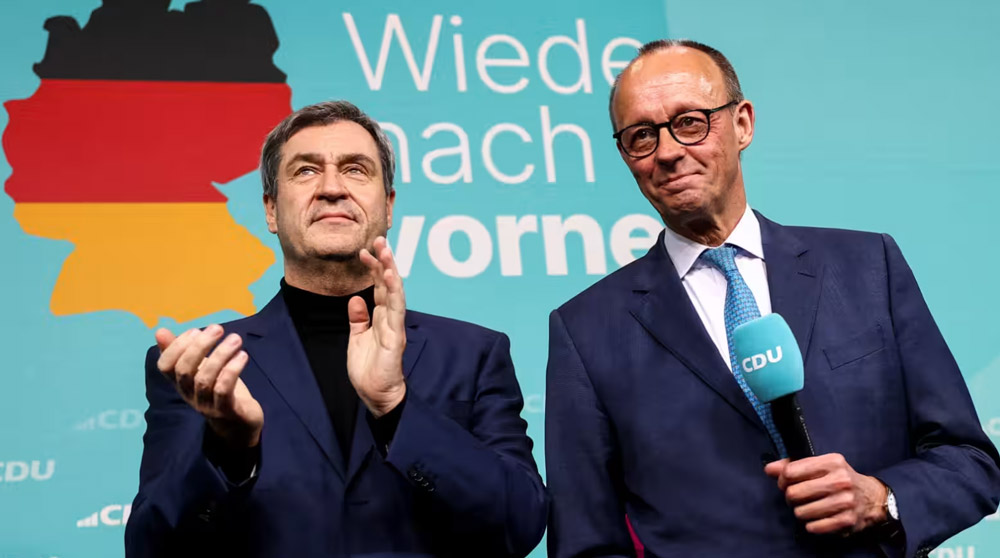Germany’s political landscape has shifted once again, with the center-right Christian Democratic Union (CDU) and its sister party, the Christian Social Union (CSU), poised to lead Europe’s largest economy after a decisive victory in the rece
nt federal election. This marks the end of a turbulent period of political instability and uncertainty in Berlin. However, the road ahead for the new government is fraught with challenges.
Election Results and Political Landscape
Preliminary results have confirmed that the CDU-CSU alliance secured 28.6% of the votes, placing them ahead of the far-right Alternative for Germany (AfD), which achieved a historic 20.8%, and the center-left Social Democratic Party (SPD) at 16.4%. This outcome signals a significant shift in the German political spectrum, with the AfD achieving its strongest result to date.
The victory positions CDU-CSU leader Friedrich Merz as the likely next chancellor, succeeding Olaf Scholz of the SPD, whose three-party coalition government collapsed last year. Merz celebrated the win, attributing it to effective collaboration between the CDU and CSU and their preparation for governing a nation grappling with significant economic and social pressures.
Forming a Coalition Government
Despite the CDU-CSU’s win, forming a stable government will require coalition-building. Analysts suggest the most probable scenario is a two-party coalition between the CDU-CSU and SPD, a partnership previously tested in German politics. However, a three-party coalition involving the CDU-CSU, SPD, and Greens remains a possibility.
Merz has explicitly ruled out any alliance with the far-right, anti-immigration AfD, despite its growing influence and popularity among voters.
Key Challenges for the New Government
The new administration will face a series of pressing challenges:
Economic Stagnation: Germany’s economy, which has long been reliant on its car-and-export-oriented industries, has been struggling with sluggish growth and the looming threat of recession. Fiscal reforms, including debates over Germany’s “debt brake” policy, will be a critical issue for the new government.
Immigration and Integration: Immigration remains a divisive topic in German politics. The rise of the AfD underscores public frustration with current policies, and the new government will need to navigate these tensions carefully.
European Geopolitics: Germany’s role in the European Union and its response to the ongoing war in Ukraine remain pivotal. The CDU-CSU government will also need to address relations with the United States, particularly as trade tensions persist under President Donald Trump’s administration.
Energy Policy and Climate Goals: Germany’s energy transition is another critical area, with debates over the cost and efficiency of current policies. Balancing environmental goals with economic growth will be a key test for the new coalition.
Economic Outlook and Fiscal Policy
Economists and strategists are closely watching how the CDU-CSU-led government will handle Germany’s fiscal policy. The “debt brake,” a constitutional rule limiting government borrowing, has been a contentious issue. While some argue it ensures fiscal responsibility, others believe it restricts necessary investments and growth.
Reforming the debt brake rule will require a two-thirds majority in parliament, which means the centrist coalition will need support from fringe parties like the AfD or The Left (Die Linke). Interestingly, Die Linke has signaled support for reforming the policy, increasing the likelihood of modest fiscal easing under the new government.
Restoring Confidence in Germany
Friedrich Merz has a monumental task ahead: restoring confidence in Germany’s political and economic stability. David McAllister, a CDU member of the European Parliament, expressed optimism, stating that Merz is well-prepared to lead Germany through this period of uncertainty.
“The less bad news first: Germany will get a new government that can put an end to a long period of debilitating political uncertainty,” noted Holger Schmieding, chief economist at Berenberg Bank. Schmieding anticipates a CDU-CSU-SPD coalition enacting pro-growth reforms, easing regulatory burdens, and pursuing more rational immigration and energy policies.
A Divided Electorate and the Rise of Populism
While the CDU-CSU’s victory represents a return to stability, it also highlights the growing fragmentation of German politics. The combined vote share of the two traditional major parties—CDU-CSU and SPD—has reached historic lows, reflecting an ongoing anti-establishment trend seen across Europe.
The rise of populist parties like the AfD indicates deep divisions within the electorate. While the CDU-CSU has ruled out working with the far-right, the AfD’s influence cannot be ignored. Its strong showing reflects discontent among voters over issues like immigration, energy policy, and economic stagnation.











